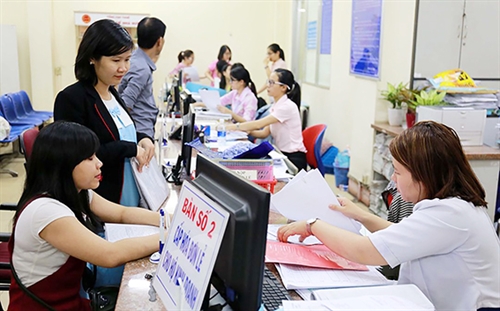Persons committing usury in civil transactions could be criminally charged, according to a draft resolution prepared by the Supreme People’s Court to guide Article 201 of the 2015 Penal Code regarding the offense of usury and trial of usury cases in civil transactions.
Under the draft, if a civil transaction of providing high-interest loan is detected before its expiry date, illicit earnings would be determined on the basis of the money amount actually paid by the borrower.
Meanwhile, if the civil transaction has expired but the borrower has not yet fully paid the loan interest or has only partially paid the loan interest, illicit earnings would still be determined on the basis of the entire period of the civil transaction.
In case the lender collects or colludes with a broker or an intermediary to collect various charges from the borrower such as contract charge, consulting charge, service charge and contact charge, such charges would be included in the loan interest in order to calculate interest rate and illicit earnings when the court examines the lender’s penal liability.
The draft also mentions persons who commit the offense of usury repeatedly with total illicit earnings of VND 100 million (USD 4,300) or more. Accordingly, if these offenders have not been examined for penal liability and the statute of limitations for penal liability examination has not expired, they would be subject to the circumstance aggravating penal liability of “committing a crime at least twice” in addition to a penalty in the penalty bracket corresponding to the appropriated property value.
An intermediary would be criminally charged as an accomplice if he knows but still provides consultancy or performs such acts as enticing, inducing or forcing the borrower or contributing funds for the lender to provide high-interest loans or collect debts.
If an offender commits different acts related to the debt collection such as foreclosing property of the borrower or using force against the borrower, he would be criminally charged for his committed acts on a case-by-case basis.
In addition, illicit earnings collected by the lender from providing a high-interest loan in a civil transactions are an illegally appropriated amount and would be returned to the borrower, except in case where the borrower uses the loan for an illegal purpose such as gambling or illegal drug trading and illicit earnings would be confiscated and remitted into the state budget.- (VLLF)









